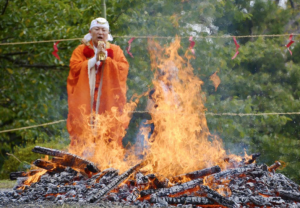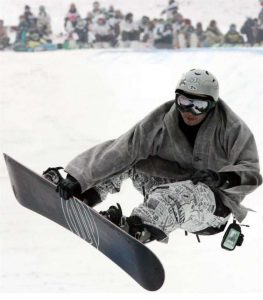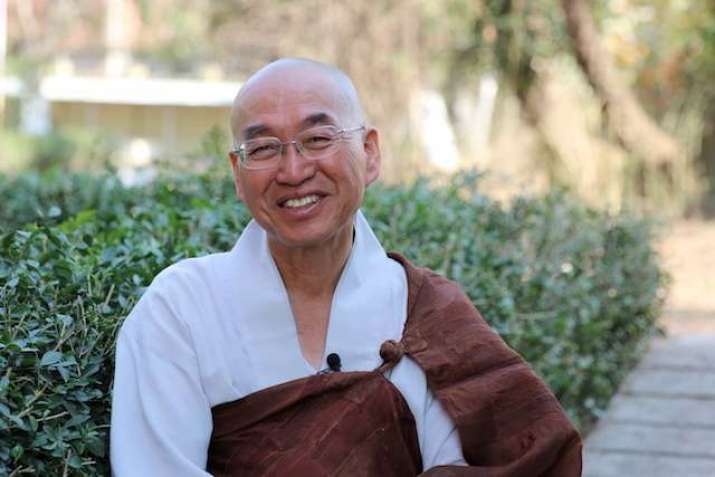
In 1991, a recently ordained Buddhist monk traveled to India on a spiritual pilgrimage. While walking in the street, he encountered a young mother who pleaded for Rs60 to buy milk powder for her baby. Because this was his first visit to India, and his travel guide had cautioned him that he should never give more than Rs1 to any of the numerous beggars he might encounter, the monk refused her request.
A short time later, after he had taken some time to reflect on his decision, the monk realized how little money Rs60 really was and felt ashamed for coldly refusing to help the woman as if she had asked him for a great fortune. He resolved to use the experience as the inspiration for a project that would benefit the struggling and underprivileged in India many times over.
The monk was Korean Seon (Zen) master Venerable Pomnyun Sunim (법륜스님),* who has since earned renown in his native South Korea and around the world for his insightful yet accessible Dharma talks and for his far-reaching humanitarian activities and projects as a socially engaged Buddhist.
“I had been raising my voice for the liberation of people from suffering, but when I encountered an opportunity to help a desperate person, I turned away,” Pomnyun Sunim recalls. “After deep repentance, I began working to help the destitute children in India.”
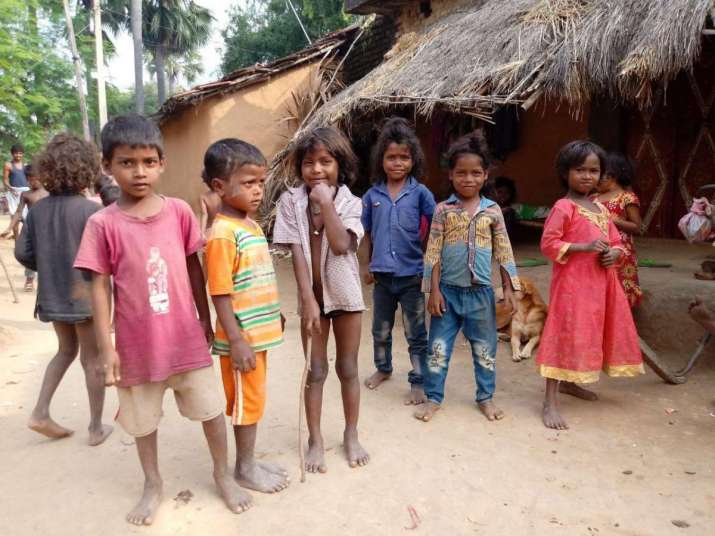
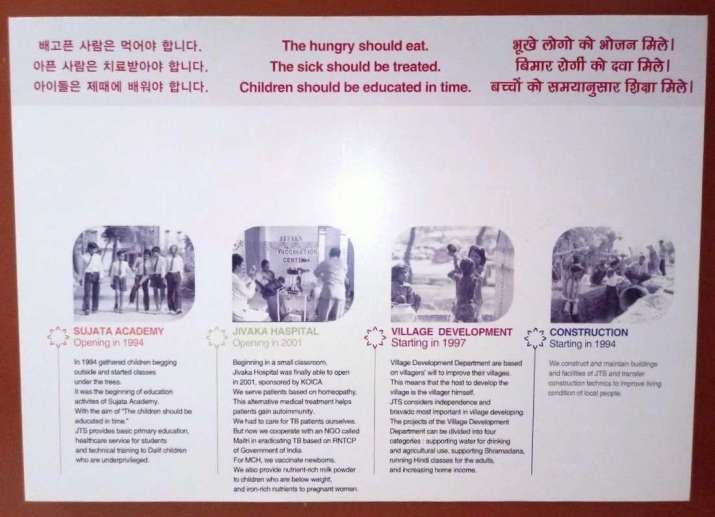
In 1993, shortly after that first pilgrimage to India, Pomnyun Sunim, the founder and chairman of the international Buddhist relief organization Join Together Society (JTS), launched JTS India, aspiring to fulfill the mission: “The hungry should eat; the sick should be treated; children should be educated in time.”
JTS India began its work in Dungeshwari, some 12 kilometers northeast of Bodh Gaya—an area surrounded by the Pragbodhi Hills where Shakyamuni Buddha is said to have spent six years in a cave as an ascetic. Here, JTS India endeavors to lift the lives of the villagers out of hunger, illiteracy, and disease by working directly with communities and helping them to mobilize their own capabilities and resources.
The people at Dongheswari consist primarily of Dalits, who face systemic social and economic exclusion as a result of the conservative Hindu social hierarchy. “Dalit,” which translates as “broken” in Sanskrit, is a term for the very lowest castes, whom members of the so-called “higher” castes still deem to be “untouchable,” although the practice is technically prohibited in the Constitution of India.
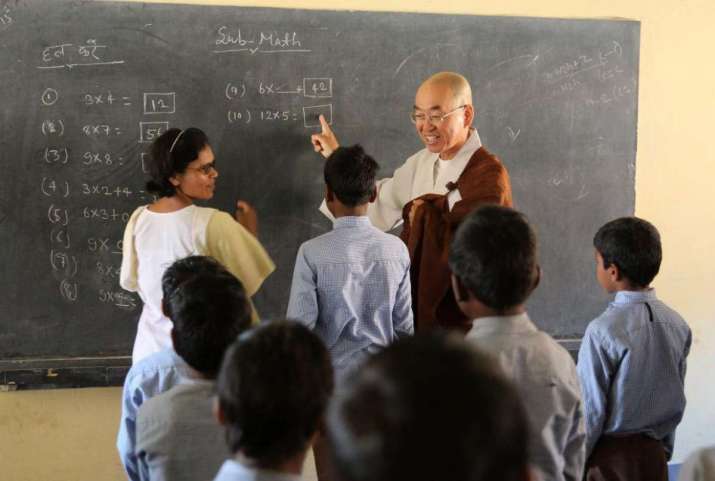
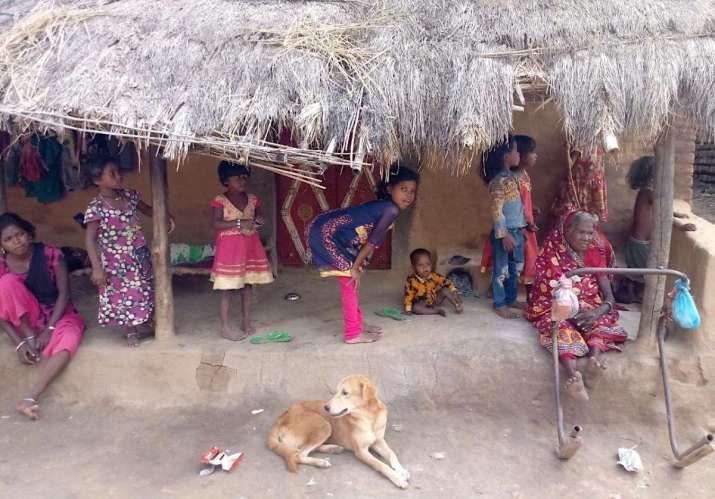
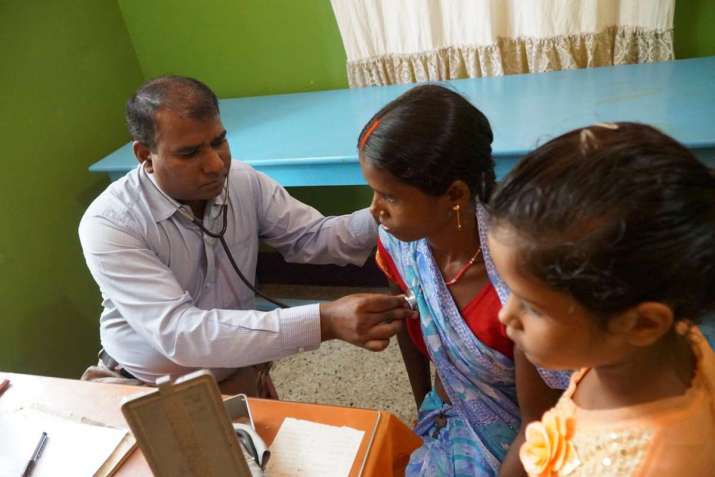
The children in the Dalit community were raised in such impoverished circumstances and so bereft of educational opportunities that they suffered from a lack of cognitive stimulation. A special program of creative scholastic activities was designed to help the pre-school and elementary children to exercise their ability to imagine, and instill self-confidence in their own abilities. The older children were taught social science, Hindi, math, English, and general science.
“The elementary students would bring their younger siblings to school, which made the classroom too noisy for instruction, so we opened kindergarten classes. We also built an infirmary for the sick children,” Pomnyun Sunim relates. “Soon, there were so many village people coming to the infirmary asking for medicine that we asked a doctor to work as a volunteer at the infirmary. However, when the number of patients visiting the infirmary daily increased to more than 100, we had no choice but to build a hospital. That’s how our operation in India grew.”
Tuition at the Sujata Academy is provided free of charge and its principal goal is to equip every student with basic literacy skills. Classes are now taught from kindergarten to secondary level, along with adult literacy classes and skills training. Students who wish to continue beyond elementary education and attend secondary school are required to teach kindergarteners or help in the medical clinic in the mornings and attend classes in the afternoon, working in the spirit of giving back to the community what they have received. Today the academy also includes a warehouse, a dormitory, a kindergarten, a large playing field, and sports equipment for the children.
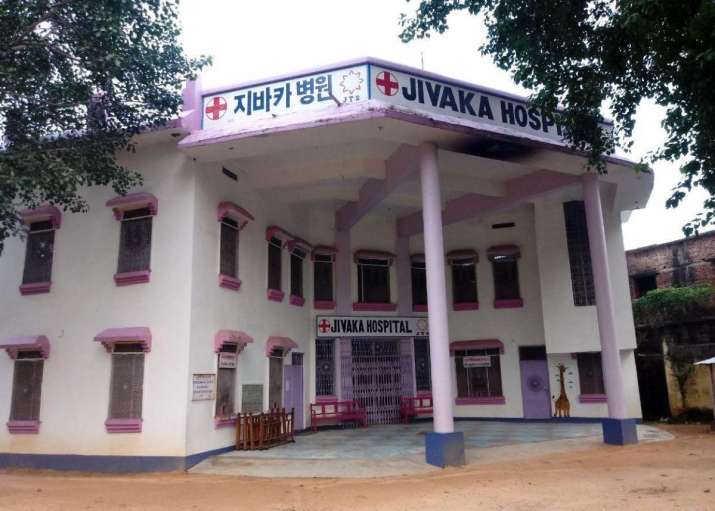
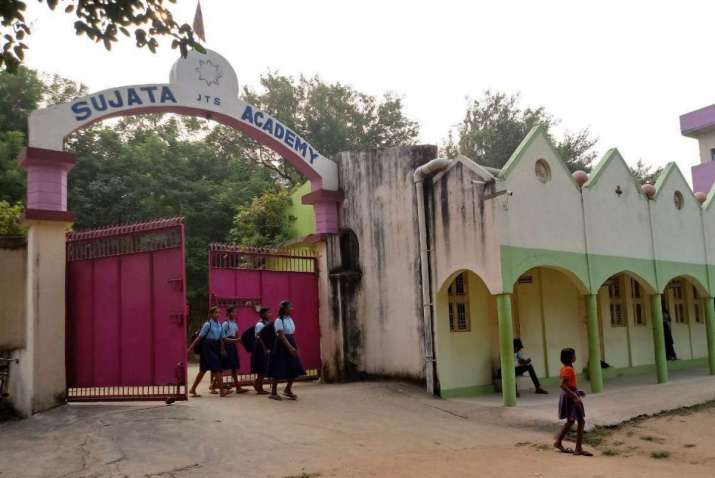
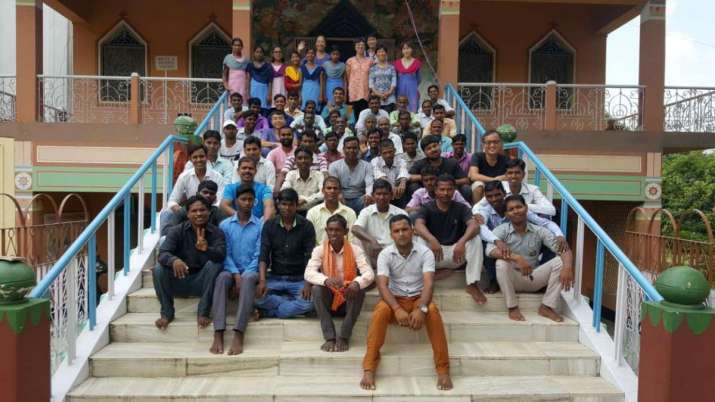
“After our doctor evaluated that the students often fainted from anemia due to malnutrition, we gave out a banana and an egg to each student for lunch,” says Pomnyun Sunim. “The school lunch attracted students who had not previously been interested in coming to school, and the number of students soon doubled. The school had been built for 150 students, but the number of students grew to 300. We even had to turn away some students who came from neighboring villages.”
JTS India has since constructed simple buildings in other communities around Mount Pragbodhi to expand its pre-school program. As of 2019, preschools are being run in 15 communities near Dongheswari for 1,015 students, with 471 children attending primary school, 122 attending middle school, and 33 in high school.
“When the students graduated from elementary school, some of them requested that we establish a middle school. After starting a middle school program, we built a kindergarten in every neighborhood and appointed the middle school students as kindergarten teachers. We purchased bicycles for the middle school students so that they could teach at the kindergarten in the mornings and attend middle school in the afternoon,” Pomnyun Sunim recalls.
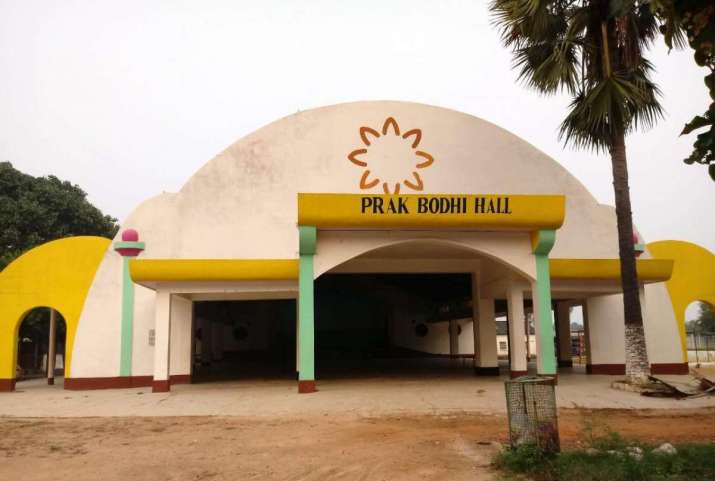
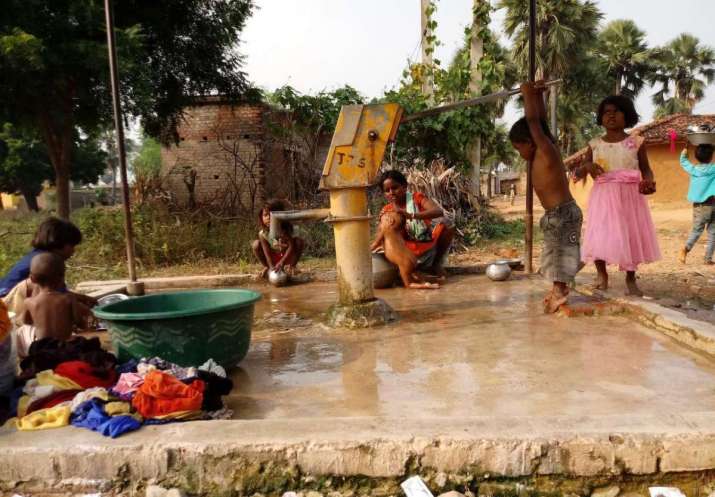
Image courtesy of JTS India
Founded as an expression of the compassion of engaged Buddhism and the belief that helping others is the best way to enrich one’s own life, JTS, headquartered in Seoul, now operates program offices in South Korea, Germany, and the US, with field offices in India and the Philippines. The organization has also earned Special Consultative Status to the United Nations Economic and Social Council (ECOSOC).
JTS is run and manned by unpaid volunteers, who are dedicated to bringing hope, empowerment, and self-reliance to underprivileged communities in developing countries, ensuring that all donations go toward benefiting the marginalized people with which the organization works. JTS carries out relief work in countries suffering from disasters, with the aim of “solving the problems of poverty and pain in Asia by the efforts of Asian people,” and has already completed numerous humanitarian projects in Cambodia, Laos, Myanmar, North Korea, the Philippines, and Sri Lanka.
What began as an informal clinic at the school construction site in Dungeshwari with a few medical supplies to treat the construction workers has since evolved into the Jivaka Hospital. For the people of Dungeshwari, the hospital is the sole medical facility in the area to which they can entrust their health and their lives.
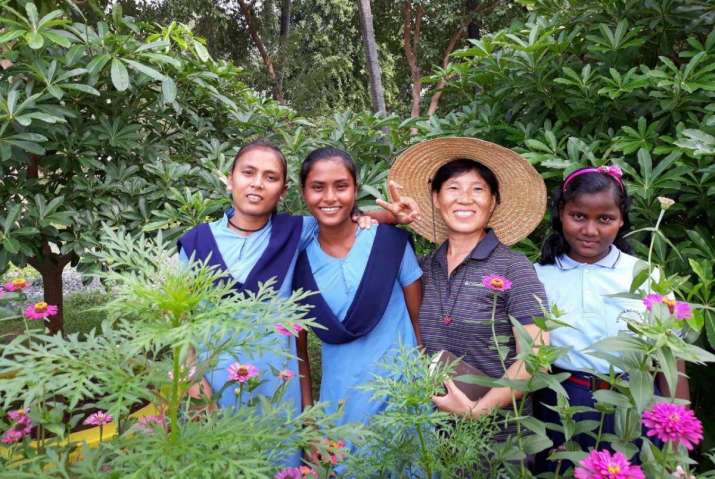
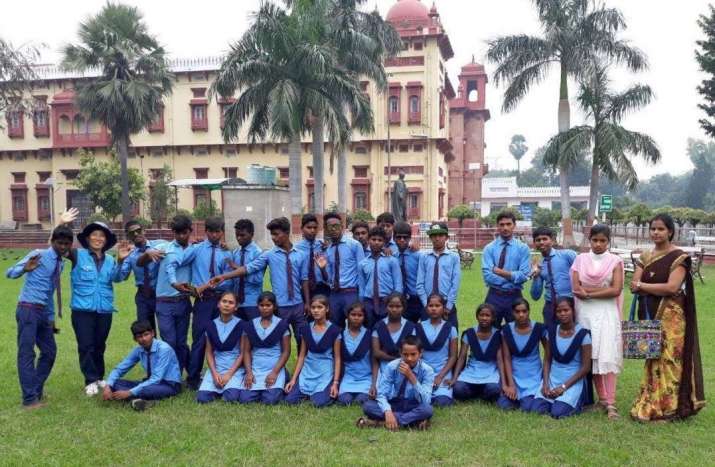
Every year, JTS installs wells and hand pumps in local villages, and digs waterways to alleviate the dire lack of clean water for drinking and agriculture, however water shortages remain a serious problem. JTS also encourages sheramdan (community work), teaching communities to work together on jobs such as repairing roads, clearing refuse, digging wells, installing sewer systems, and building kindergartens, all carried out by volunteers from the community. Adult education encompasses technology training to create jobs and income, including classes for sewing, typing, and farming techniques. JTS also collects village census data, has instituted a Hindi language class to enable greater social integration and interaction with other communities, and has started a soccer competition to promote harmony and a sense of community.
Since 2015, the Sujata Academy has been run by the Korean Dharma teacher BoGwang Bobsanim, who is also closely involved in teacher training and evaluation. Since the Sujata Academy now needs more space for its growing student body, a new three-story building is currently under construction and will eventually house special programs such as computer studies, dancing, drawing, and sports.
“It’s good that I’m able to devote myself to reach enlightenment in the same place that the Buddha did so. I’m happy that I can be a little help by living here as a neighbor in Dungeshwari,” says BoGwang Bobsanim. “Since I have lived here with them, I have realized how precious and desperately needed the school, hospital, and even a single drop of safe water are to this community.”
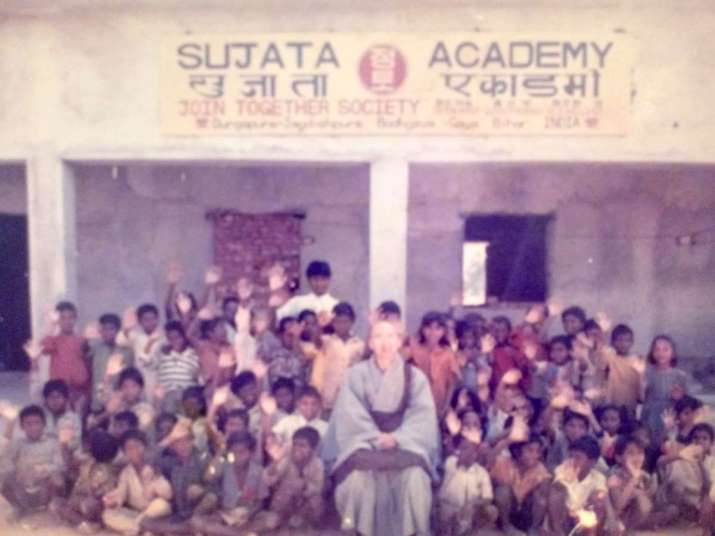
“The momentum that sustains our relief work in India is related to the Buddha. I met these people during my pilgrimage,” says Pomnyun Sunim. “I started this project not because this is a sacred area of the Buddha, but because I happened to meet beggars as well as ‘untouchables’ during my pilgrimage in India. The connection with the Buddha is that the Buddha himself lived by receiving alms from the people of India during his life. So I think that we, as disciples of the Buddha, have to pay back this merit to the Indians. Ven. Hyecho [704–87, a revered Korean Monk who traveled to China, India, and Central Asia] also received alms during the years he spent studying in India. The value of the support shown by Indians in those days would be incalculable in modern currency, so I do this work with a sincere mind to pay it back as a disciple of the Buddha.”
With special thanks to Dharma teacher BoGwang Bobsanim, director of JTS India.
* Sunim is a Korean title of respect for Buddhist monastics.
See more
JTS India (Facebook)
JTS International
JTS Korea
JTS America
Support JTS & Join Us Today by Making a Donation (JTS America)
Jungto Society
정토회
Pomnyun








